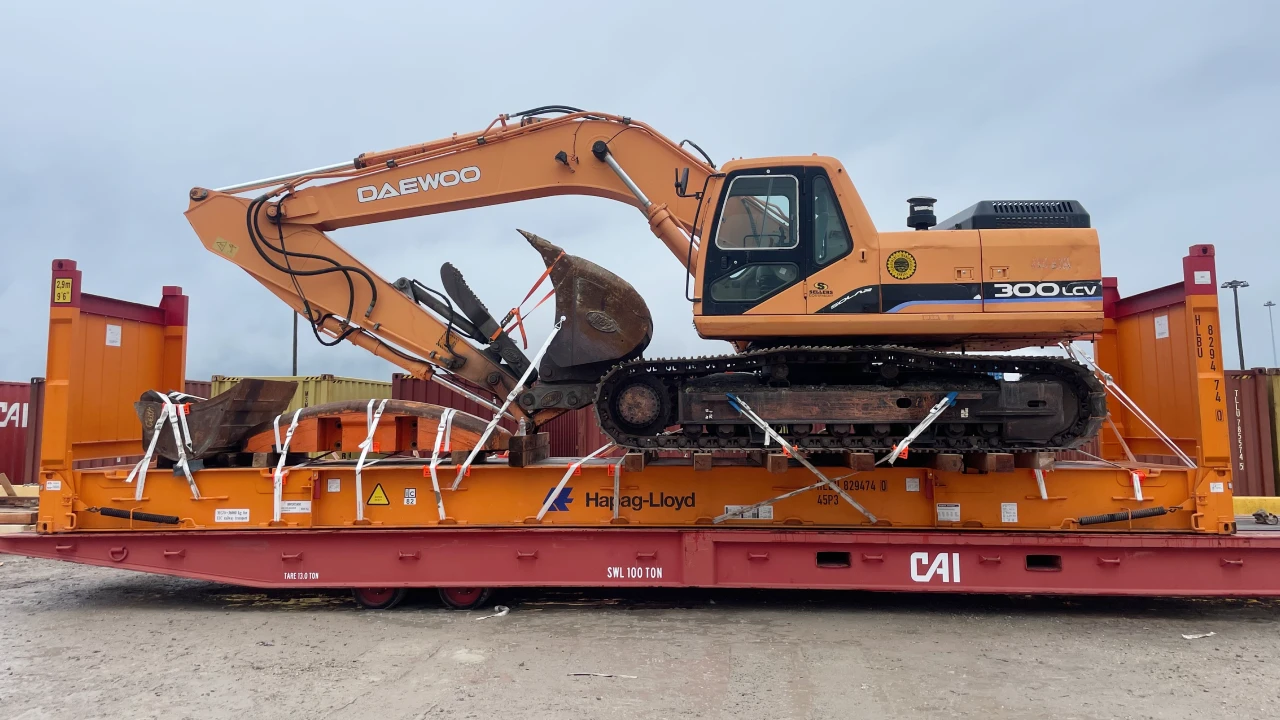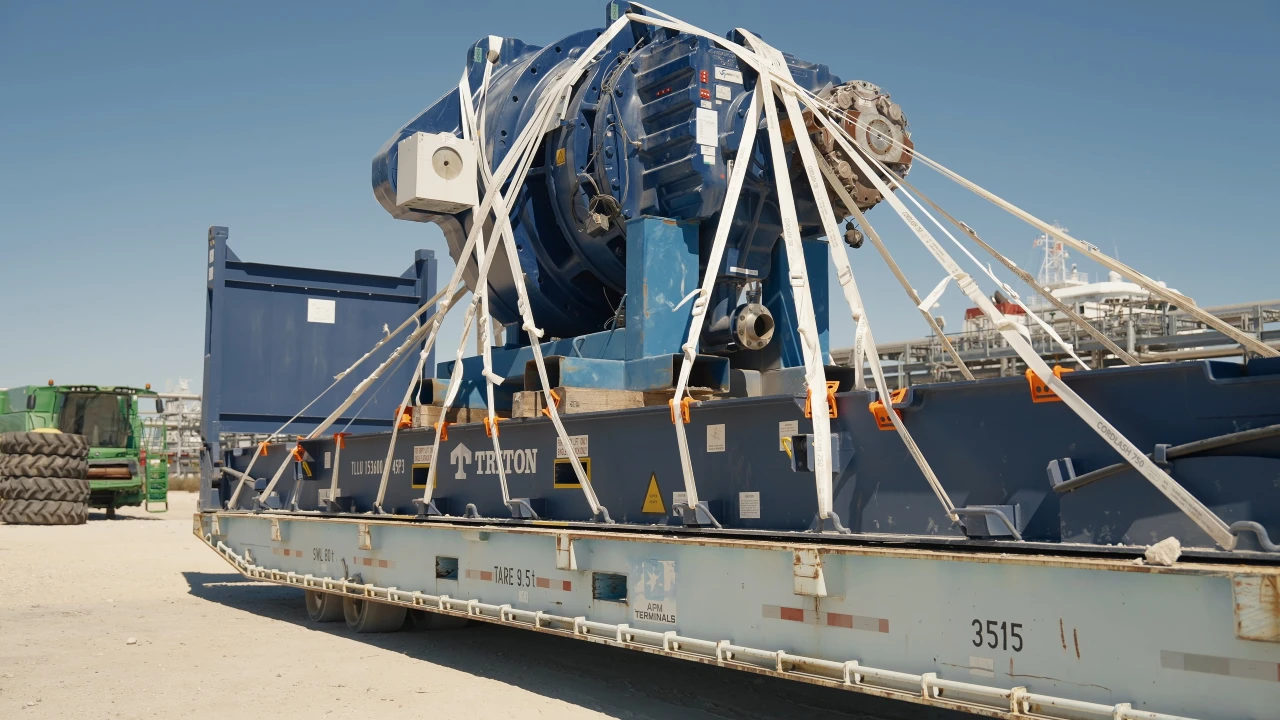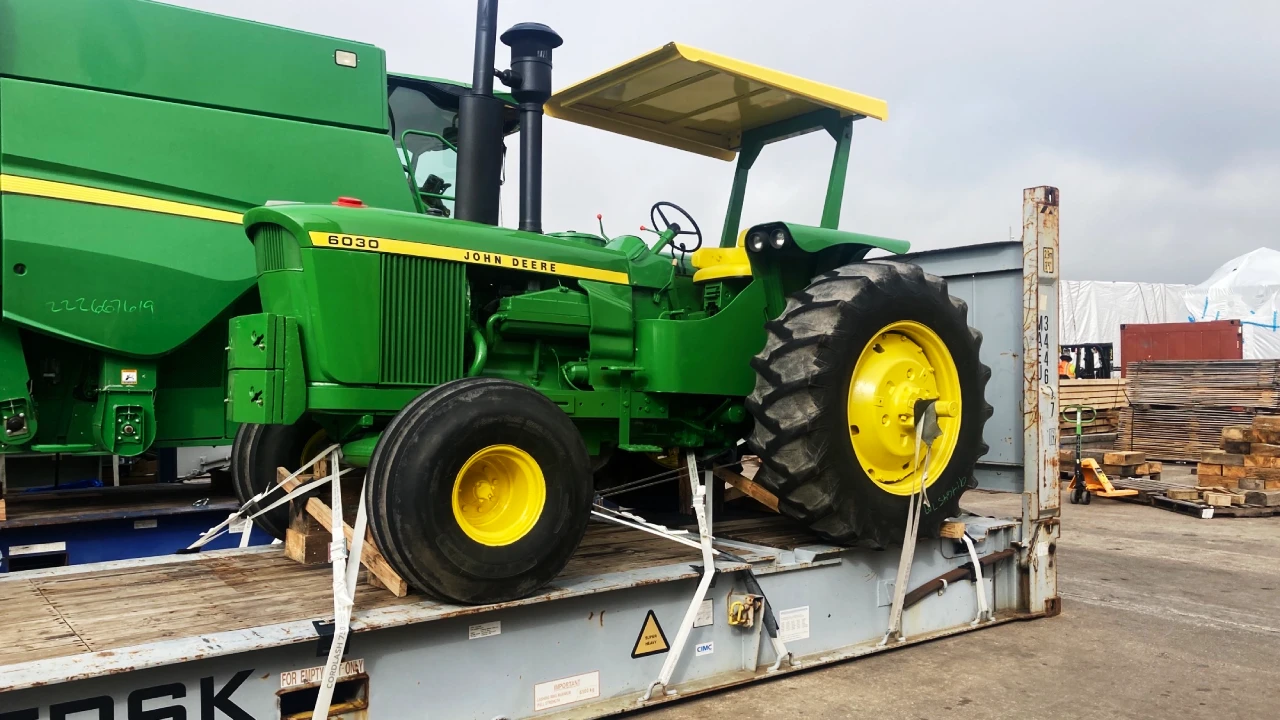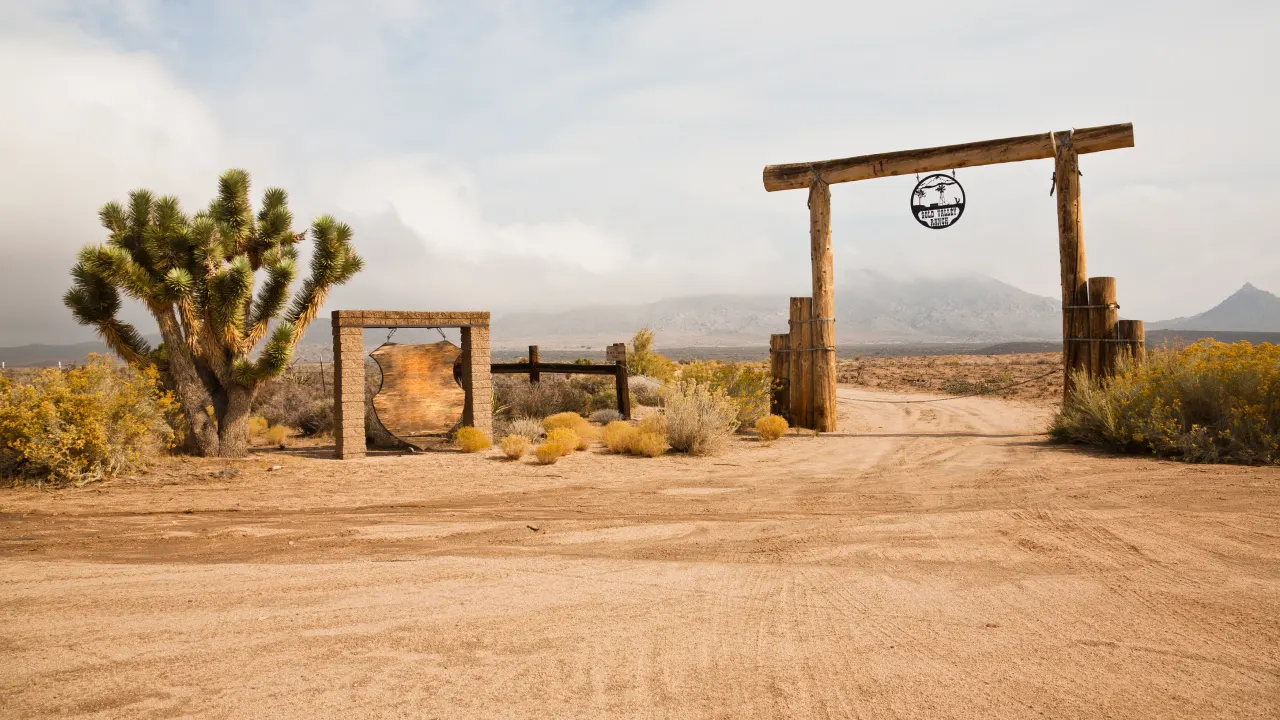
Key takeaways
- There are numerous farms and agricultural productions in the United States,
and some of them are included in the TOP largest farms of the world. - The largest farms in the US produce a variety of agricultural products and livestock throughout the United States.
- Some of the biggest agricultural manufacturers and farms have been providing their services for more than 100 years.
The agricultural landscape of the United States is huge and varied, but certain farms stand out not just for their heritage or production, but for their sheer scale. These operations represent the pinnacle of American farming, blending tradition with innovation across millions of acres.
As logistics demands rise in step with agricultural output, understanding the structure and strategy of these major landowners is essential for supply chain leaders. Atlantic Project Cargo understands and investigates these features and peculiarities to facilitate the process of preparing products for transportation, takes into account all the details when preparing documentation, and helps suppliers send goods to customers faster.
Get a Free Quote!
What are the Largest Farms in the United States?
Singleton Ranches (New Mexico & California)
1.1 million+ acres
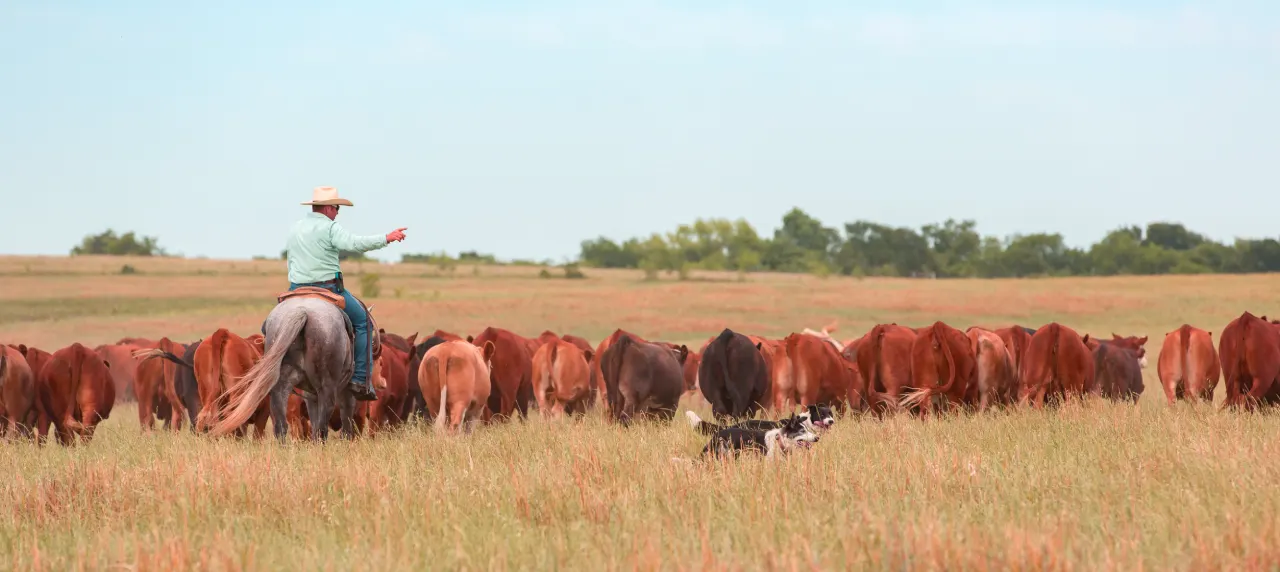
With holdings that stretch across two major states, Singleton Ranches operates one of the largest commercial cow & calf and yearling operations in the US. And this is not only the largest farm in the US, but it’s one of the largest farms in the world. It manages roughly 10,000 mother cows and up to 40,000 yearlings per year.
Equally known for its elite Quarter Horse breeding, this ranch is built on rugged, often isolated terrain, making it a prime candidate for advanced route planning, feed supply logistics, and livestock transportation systems.
| Feature | Detail | Notes |
|---|---|---|
| Size | Over 1.1 million acres | Among the largest cow-calf ranches in the US |
| Focus | Cattle, Quarter Horses | Strong presence in beef production and horse breeding |
| Livestock | 10,000 cows, 40,000 yearlings | Known for sustainable and large-scale livestock farming |
| Production | Commercial beef | Core to the biggest farming operations in the US |
| Significance | Modern giant in US ranching | Reflects America’s biggest farmers' efficiency and scale |
King Ranch (Texas)
825,000 acres
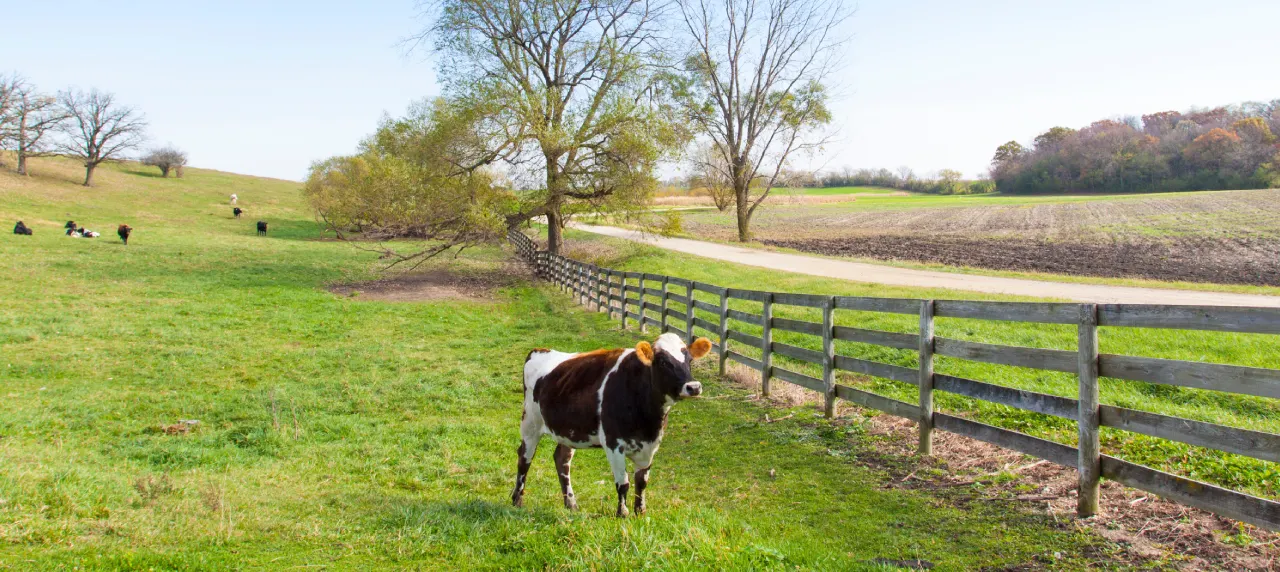
King Ranch was founded in 1853 by Captain Richard King. It remains one of the most iconic names in American ranching. Located in South Texas, this operation affects 4 divisions: Santa Gertrudis, Laureles, Norias, and Encino, across six Texas counties, including Kleberg and Kenedy. The ranch played a significant role since it was run, engaging in cotton smuggling. After 1960th, King expanded the ranch extensively.
As one of the biggest farms in the US, Ranco leads in cattle breeding, especially its proprietary Santa Gertrudis breed. The ranch manages over 35,000 head of cattle. Beyond livestock, it cultivates cotton, citrus, sugarcane, turfgrass, and grain. The ranch’s scale and diversified operations present exceptional opportunities for integrated logistics, from livestock hauling to cold-chain produce transport. Its central location near key Texas highways enhances its distribution potential.
| Feature | Detail | Notes |
|---|---|---|
| Size | 825,000 acres | Larger than the state of Rhode Island |
| Focus | Cattle, cotton, citrus, grains | One of the most diversified ranches in the US |
| Livestock | 35,000+ head of cattle | Home of the Santa Gertrudis cattle breed |
| Production | Beef, cotton, citrus | Operates several divisions with distinct outputs |
| Significance | The oldest and most iconic American ranch | Defines the legacy of American farming |
Waggoner Ranch (Texas)
535,000 acres
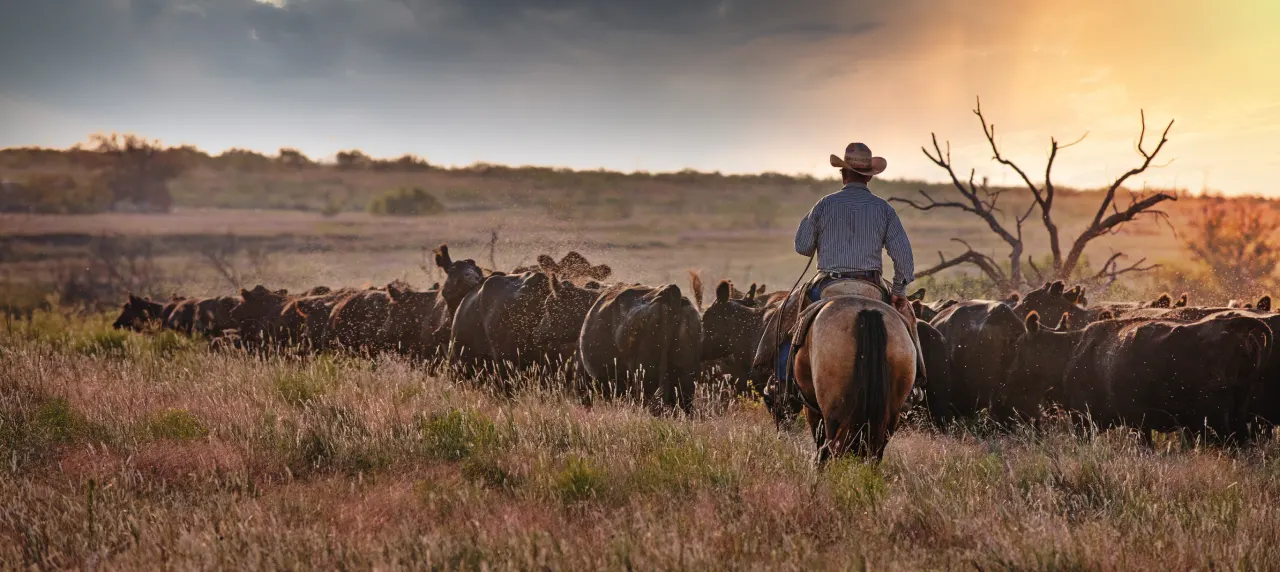
The W.T. Waggoner Ranch, founded in 1849, stands as one of the largest continuous ranches in the United States. Currently owned by Stan Kroenke, entrepreneur and real estate investor, this Texas landmark stretches across six counties and encompasses cattle raising, horse breeding, oil extraction, and more farming activities.
Although it is no longer managed by the founding family, the ranch remains one of the most renowned agricultural estates in the country. As a consolidated property, the ranch’s internal systems, including roads, pipelines, and irrigation networks, require efficient logistical support.
| Feature | Detail | Notes |
|---|---|---|
| Size | Around 535,000 acres | One of the largest contiguous ranches in the US |
| Focus | Cattle ranching, horses, oil, crops | A diversified operation including agriculture and natural resources |
| Livestock | Thousands of cattle and horses | Renowned for its quarter horse breeding and beef cattle operations |
| Production | Beef, hay, and limited oil extraction | Not industrial-scale crops, but strong livestock and resource outputs |
| Significance | Iconic ranching estate in the US | Owned by Stan Kroenke; blends historical heritage with modern operations |
Simplot Family (Idaho & Washington)
400,000 acres
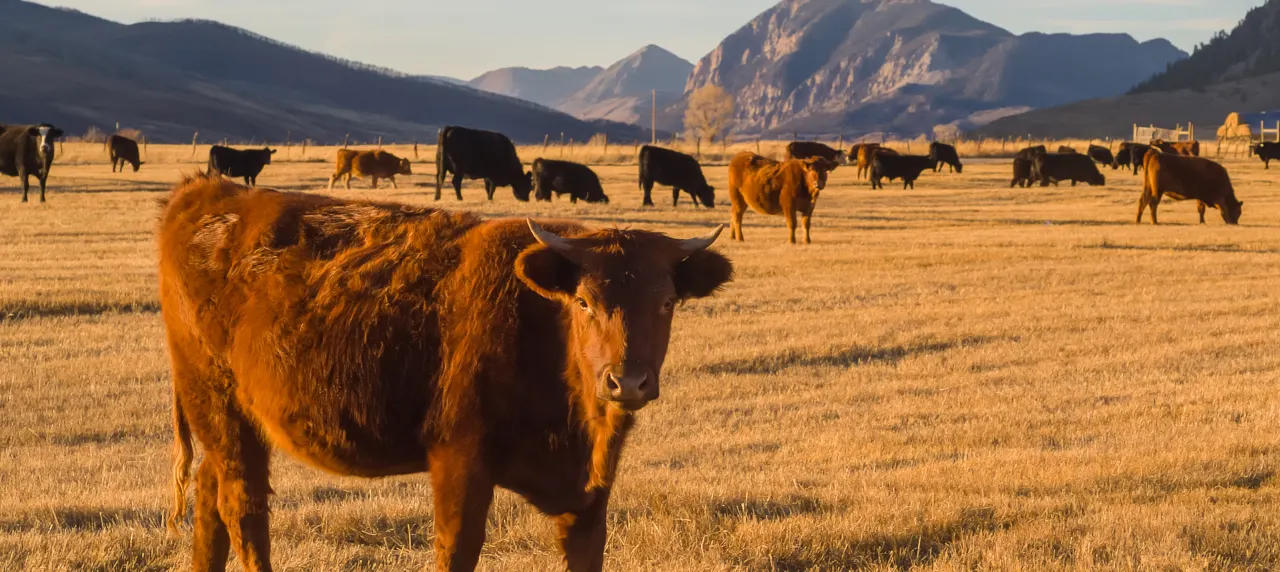
The Simplot Company, established by American entrepreneur J.R. Simplot in 1929, stands as a giant in the US agricultural sector. This farm is famously known for supplying frozen French fries to McDonald’s and other major clients. The Simplot family manages a fully integrated business that covers potatoes, cattle ranching, fertilizer manufacturing, and food processing.
It’s rooted deeply in Idaho and extends throughout the Pacific Northwest. Simplot ranks among the largest agricultural producers in the country by industrial scale.
| Feature | Detail | Notes |
|---|---|---|
| Size | An estimated 400,000+ acres (multiple holdings) | Includes farmland, feedlots, and industrial plants across the Northwest |
| Focus | Potatoes, cattle, fertilizer, processed foods | Vertically integrated supply chain (e.g., McDonald’s fries supplier) |
| Livestock | Thousands of cattle | Also involved in beef production and animal nutrition solutions |
| Production | Frozen foods, fertiliser, agri-inputs | Operates food plants and export logistics for processed potato products |
| Significance | Global food giant rooted in US farming | Among the biggest farmers in the US by output and industrial scale |
Deseret Ranches (Florida)
295,000 acres

The Deseret Ranch, one of the largest farms in America, is a part of The Church of Jesus Christ of Latter-day Saints managed by AgReserves. The farm is one of the most productive cattle operations in the United States, dating back to the early 1900s. It consists of 14 different farms, houses about 44,000 cows.
It also grows timber, potatoes, corn, and sod while maintaining strong environmental stewardship. But the main important and massive agriculture is more than 200,000 trees — there are oranges for juice from Valencia.
The ranch’s scale and variety of outputs make it an ideal candidate for modern logistics integration, particularly cold storage, bulk transport, and inventory tracking.
| Feature | Detail | Notes |
|---|---|---|
| Size | 295,000 acres | Largest cow-calf ranch east of the Mississippi |
| Focus | Cattle, citrus, timber, sod | Diversified production in a humid subtropical climate |
| Livestock | 44,000 cows | Vital part of the US beef supply chain |
| Production | Beef, citrus, timber | Strong integration with conservation practices |
| Significance | Faith-owned mega ranch | Emphasises sustainable and long-term agricultural goals |
Tejon Ranch (California)
270,000 acres
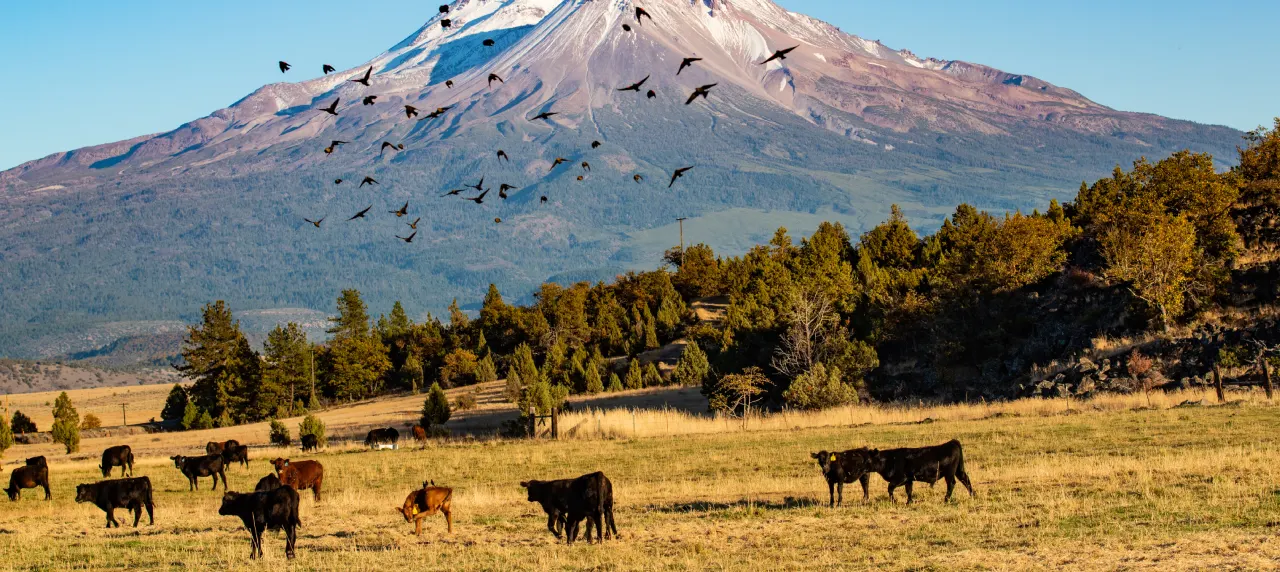
As the one of the largest farms in California, contiguous private landholding, Tejon Ranch merges agriculture with commercial real estate development. It was run from 4 Mexican land grants consolidated in the mid-1800s by naval officer Edward Fitzgerald Beale, who gathered Rancho La Liebre, Rancho El Tejon, Rancho Los Alamos y Agua Caliente, and Rancho Castac. This is one of the oldest granges in California and in the US.
It produces row crops, pistachios, and grapes, while supporting cattle grazing and conservation projects. In addition to agriculture, the farm is involved in the sale of minerals, oil, and water resources. There is a hunting program with professional hunters who help tourists. Also, the picturesque places of the ranch are often used for filming movies and advertising.
Its standout feature for logistics investors is the Tejon Ranch Commerce Center — an industrial and warehousing complex with direct access to Interstate 5. This site is already a distribution hub for major retailers, with scope for further expansion.
| Feature | Detail | Notes |
|---|---|---|
| Size | 270,000 acres | California’s largest contiguous private landholding |
| Focus | Grapes, pistachios, cattle | Blends farming with real estate and conservation |
| Livestock | 6,000+ head of cattle | Combines pasture management with dryland farming |
| Production | Wine grapes, nuts, and beef | Mixed farming across varying California terrain |
| Significance | Landmark agribusiness | A major stakeholder in sustainable development and logistics |
R.D. Offutt Farms (North Dakota and beyond)
190,000 acres
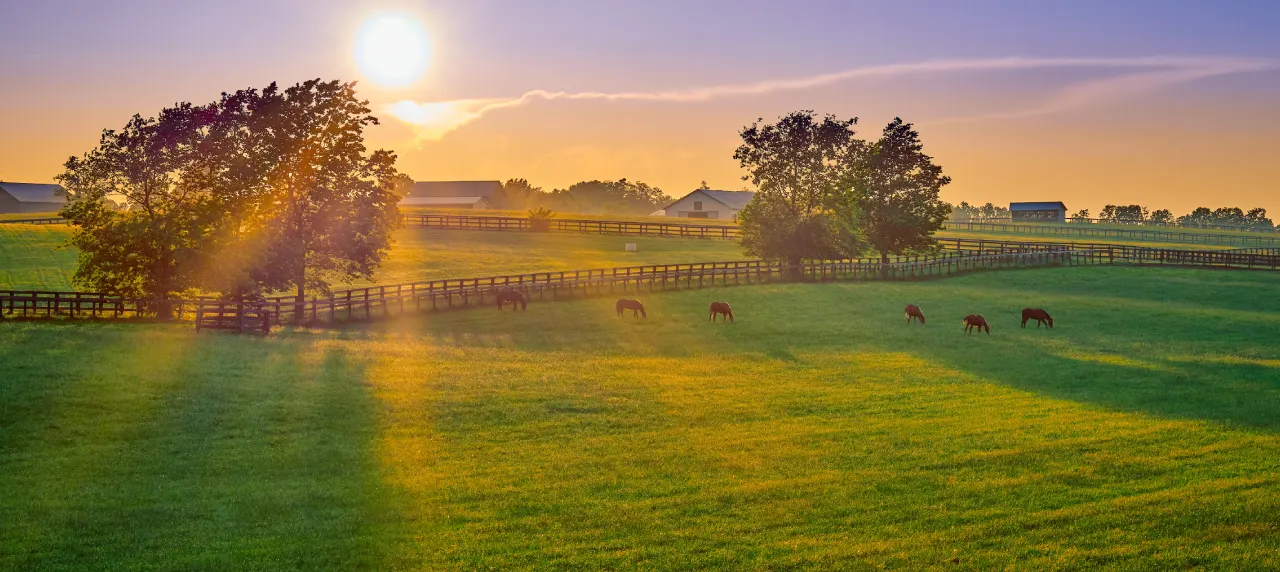
R.D. Offutt Farms was established in 1960th and leads the nation in potato production, serving major fast food giants like McDonald’s. The history of this farm goes back to the childhood of its future founder, Ron Offutt, who helped his father plow potatoes and then sold them in the suburbs.
Its emphasis on sustainable farming and collaboration with research bodies makes it a progressive force in American agriculture. For example, Offutt Farms is collaborating with state research institutes to develop a potato variety that requires less water. Also, the farm focuses on soil health, crop rotation, and integrated pest management to maintain productivity and sustainability. It also participates in industry initiatives such as the Potato Sustainability Alliance, which promotes environmental management and data-driven improvements throughout the potato supply chain.
With a footprint across the Midwest, the farm’s need for temperature-controlled logistics, timely freight management, and seasonal delivery systems creates substantial scope for logistics partnerships.
| Feature | Detail | Notes |
|---|---|---|
| Size | 190,000 acres | Largest potato farm in America |
| Focus | Potatoes, row crops | Supplies McDonald’s and other major clients |
| Livestock | N/A | Specialises in crop production, not animal farming |
| Production | 50,000+ acres of potatoes | Integrated with agritech and irrigation systems |
| Significance | Model of sustainable crop farming | Represents modern ag in the biggest farms for American farmin |
Stewart & Lynda Resnick (California)
190,000 acres
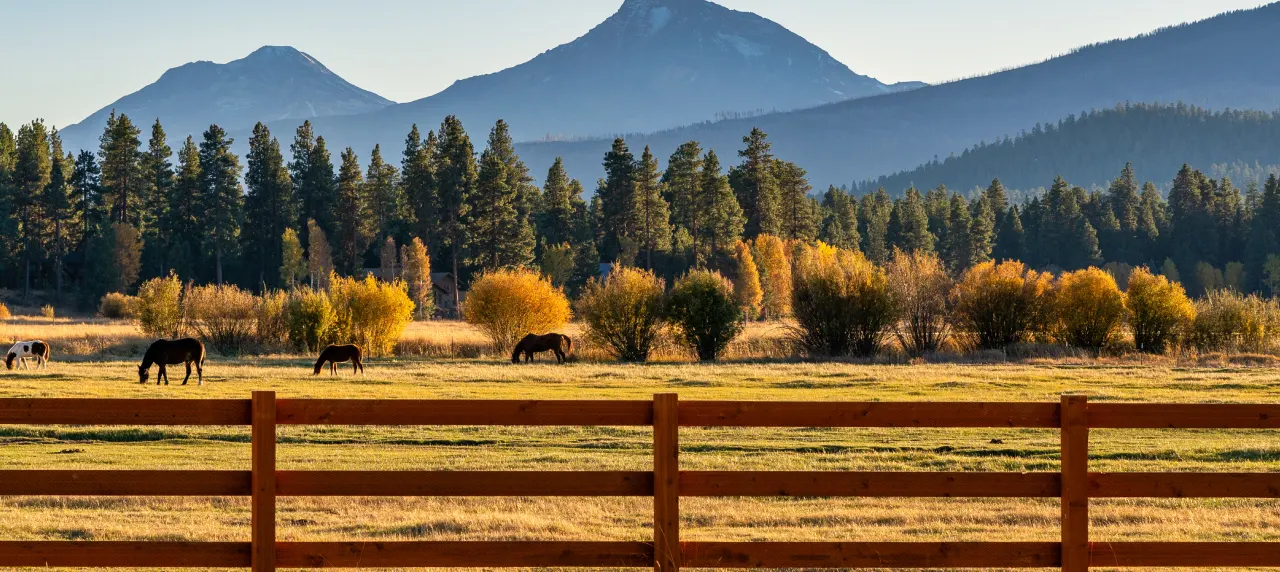
The Resnick family, through The Wonderful Company, oversees one of the nation’s most successful and expansive farming operations. Their agricultural empire is built around crops: almonds, pistachios, pomegranates (marketed under the Wonderful brand), citrus fruits, and even premium bottled water (popular in the USA — Fiji Water).
Their farms stretch across California’s Central Valley, a region renowned for its exceptional productivity, especially in high-value crops that require significant water resources. Managing the Resnicks’ diverse portfolio is highlighted for Americans and international buyers.
Their business is structured to control every stage, from harvesting in the orchards to processing and worldwide distribution, and is focused on providing good and comfortable conditions for customers.
| Feature | Detail | Notes |
|---|---|---|
| Size | Around 190,000 acres | Concentrated in California’s fertile Central Valley |
| Focus | Tree nuts, fruits, citrus, and bottled water | Almonds, pistachios, pomegranates, citrus, and Fiji Water |
| Livestock | None | Specialises in permanent crops and water resource management |
| Production | Millions of pounds of nuts and fruit | Supplies both the US and global markets with high-value crops |
| Significance | Among the richest farm owners in the US | Influential in California water rights and sustainable ag tech investment |
Fanjul Family (Florida)
155,000 acres
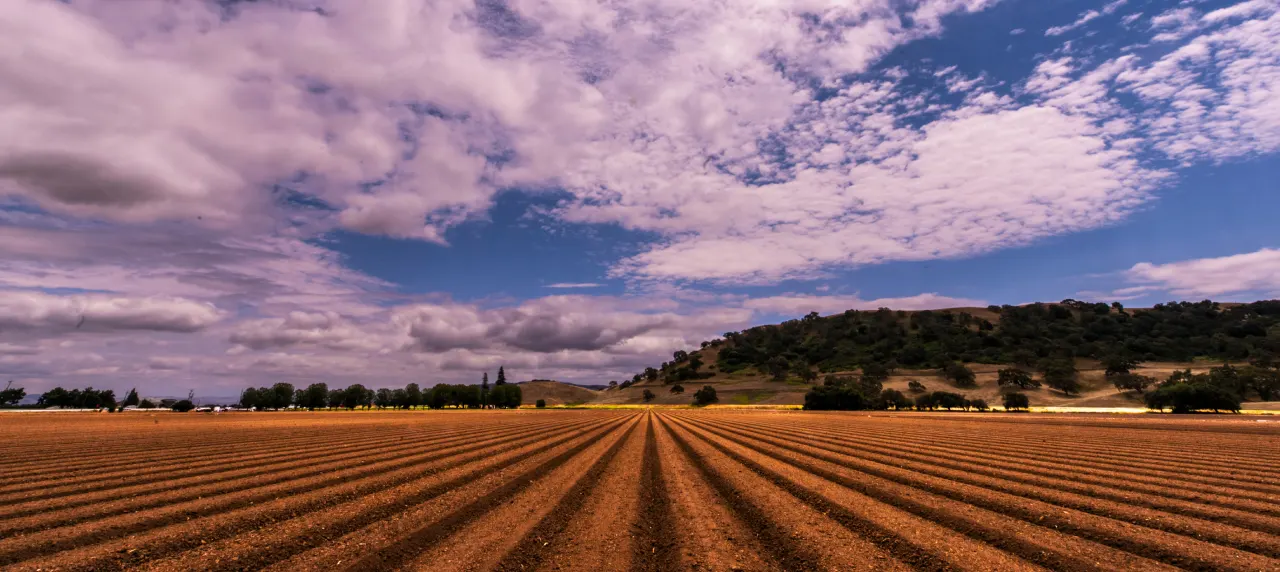
The Fanjul Family owns and operates one of the biggest farms in the US, and, first of all, is focused on sugarcane production through Florida Crystals Corporation and ASR Group. The farm is based in the Everglades Agricultural Area, and it includes milling, refining, and exporting, making it not only one of the largest farms in the US but also one of the most vertically integrated. Their reach extends beyond Florida, with co-ownership of Domino Sugar, one of the best-known sugar brands in the US.
As a vertically integrated sugar enterprise, Fanjul operations depend on efficient year-round logistics. This includes bulk commodity transport, agricultural equipment movement, and refined sugar distribution to both domestic and international markets.
| Feature | Detail | Notes |
|---|---|---|
| Size | Around 155,000 acres | One of the largest privately owned agribusiness estates in the US |
| Focus | Sugarcane production | Vertically integrated — from cane fields to refined sugar products |
| Livestock | Minimal (primarily crop-focused) | Not livestock-intensive; oriented towards crop logistics |
| Production | Millions of tons of sugar per year | Owns and operates Florida Crystals and is a part of the Domino Sugar brand |
| Significance | Among the biggest farms in America | A dominant player in US sugar production, with major export and processing assets |
Boswell Family (California)
150,000 acres
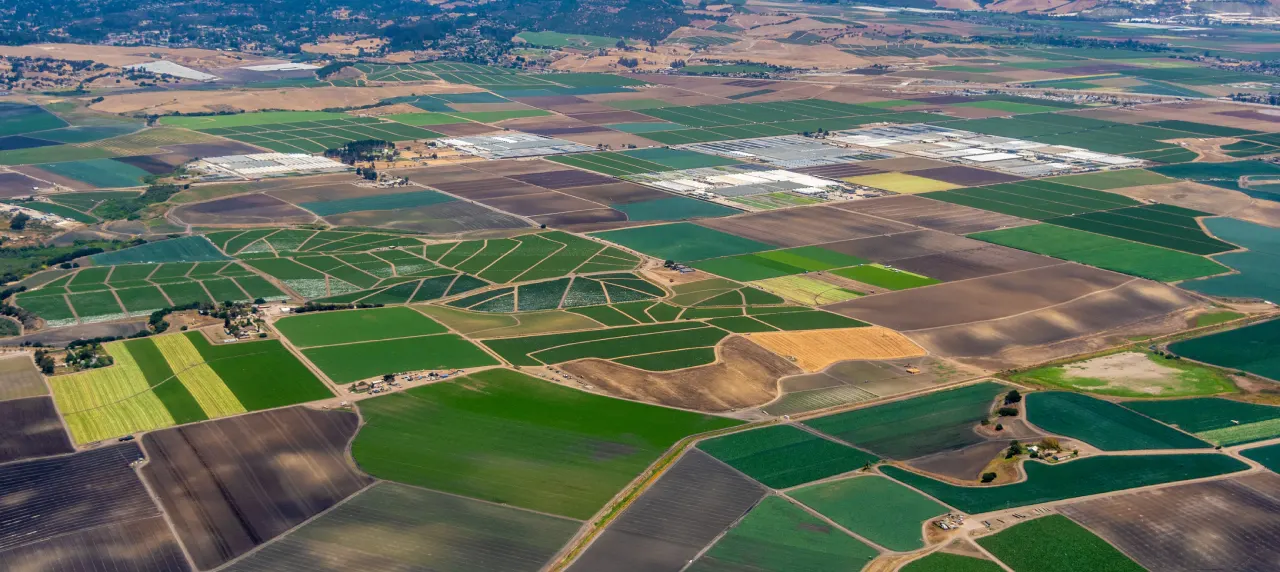
The J.G. Boswell Farm ranks among the largest cotton producers in the United States, with its primary operations centered in California’s San Joaquin Valley. With a long-standing presence in American agriculture, the Boswell family has built a legacy that includes not only cotton but also tomatoes and alfalfa.
Their influence extends beyond farming to significant management of water rights and land development initiatives.
Given their focus on commodity crops, the Boswell operation relies heavily on large-scale bulk transportation, seasonal trucking fleets, and access to rail networks. Located in the Central Valley, their operations are closely linked to California’s inland port systems and agricultural rail infrastructure, facilitating efficient distribution. All of these options make this farm one of the most important players in product distribution for manufacturers.
| Feature | Detail | Notes |
|---|---|---|
| Size | Around 150,000 acres | Historic farm holdings in California’s San Joaquin Valley |
| Focus | Cotton, tomatoes, alfalfa | Among the largest cotton producers in the United States |
| Livestock | Minimal | Primarily row crops; large-scale irrigation systems |
| Production | Hundreds of thousands of cotton bales | Exports to textile mills globally |
| Significance | A legacy agribusiness operation | Known as a water controller and a major influencer on California farming |
Conclusion
American farming is an agrarian, cultural, economic, and innovative enterprise that, as we see, is not only engaged in agriculture and livestock production but also helps develop tourism, explore opportunities for improving the environment, find new ways to spread the culture of agriculture, and maintain cultural heritage.
Atlantic Project Cargo helps farmers and manufacturers in the US to transport their equipment on time and feed our nation. If you need a reliable and secure transport partner, contact us.
Read More
